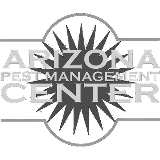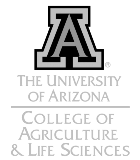As
we are all aware the most commonly used herbicides in lettuce production are
Kerb (Pronamide), Balan (Benefin), and Prefar (Bensulide). Our weed complex for
lettuce grown in the low desert includes summer annual weeds grasses and
broadleaves early in the season as well as winter annuals, which are a problem
during the cooler months. Most of these are controlled with preemergent
herbicides although escapes are common and must be controlled postemergence.
Occasionally when herbicides and cultural practices are not sufficient
expensive hand weeding is required for commercially acceptable weed control. To
illustrate numbers from our 2016 Crop losses report showed that 91% of the
lettuce surveyed required some hand hoeing even when 82% of the acres was
treated with Pronamide. Also Bensulide and Benefin were applied at lower
percent.
Therefore, evaluation of new effective herbicides is always welcomed. We
conducted a couple of projects at the Yuma Agricultural Center to look at weed
management in transplanted lettuce to determine Pre and Post-Transplant weed
control as well as crop safety of other active ingredients such as
S-metholachlor (Dual Magnum), Pendimethalin (Prowl), DCPA (Dacthal) and compare
them with Pronamide (Kerb) and other products.
Transplanting lettuce and the use of planting tape has opened the possibility
of using herbicides that injure direct seeded lettuce but may be safer to
plants with a developed root system. Additionally, they could show more
efficacy in controlling some weeds present in our area.
We are still collecting results from these trials and will publish them
soon in this Newsletter as well as in the upcoming Lettuce Crop Losses Workshop.

Prowl Applied Pre-transplant





